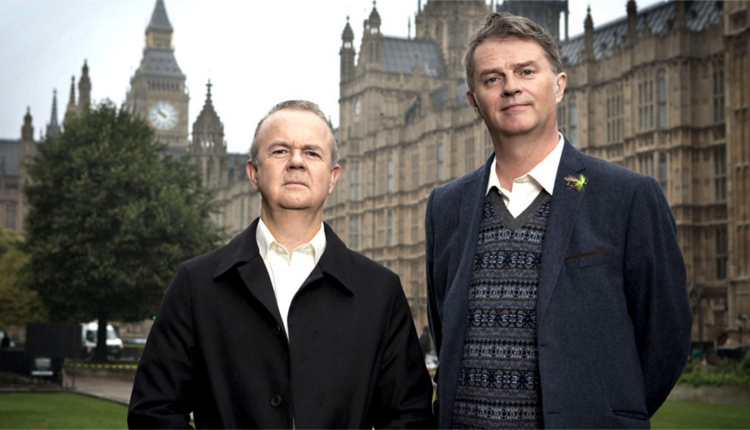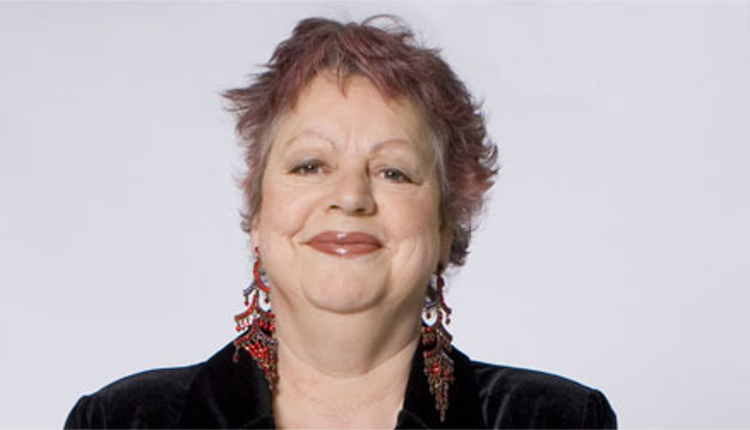Have I Got Feminism For You | HIGNFY, Sexism & Jo Brand
As soon as it happens, the think-pieces emerge. The internet – all right, the UK bit of the internet – fills up with articles about why Jo Brand’s hosting of Have I Got News For You (recorded Thursday the 2nd, aired Friday the 3rd of November 2017), complete with a sharp reminder to the all-male panel about how even what seems like low-level sexual harassment in the workplace mounts up for women, particularly as they encounter this kind of stuff both in and out of the office, was in some way a betrayal of or let-down of feminism.
Brand, reduced to ‘female comedian’ in Buzzfeed articles, was mainly chastised by social media for not doing enough – or rather taking the blame for the producers not doing enough. For all of British/Western/global comedy for doing enough.
But good grief, if you’ve watched Have I Got News For You obsessively since its inception, as some of us have, you understand that Jo Brand’s bit of educating in that episode of its 54th series (when it began in late 1990, Margaret Thatcher was still in power) was extraordinary.

And it was extraordinary because it is very, very difficult to change the mood of a show that has been running for almost 30 years. HIGNFY is incredibly male and incredibly into its sex gags, particularly those relating to homosexuality. Original host Angus Deayton with his drugs and hookers scandal of 2002 wasn’t the problem — it was that the show so often used these things to poke fun at others, particularly those of a sanctimonious nature. It was the ongoing nature of the scandal – and the capacity of media personalities like Christine Hamilton (wife of disgraced MP Neil, both of whom owe the show a great deal for their extended careers) to take the moral high ground – that made it difficult for the comedy to work.
Let’s be honest: this is not a show that has been particularly kind to women. Paul Merton has always been better than his fellow co-captain and regular Ian Hislop about the ladies, but his tendency is to go terribly surreal – a tactic that can often distract rather than make a political point. We see this early on, perhaps most notably in the legendary 1995 episode with guest Paula Yates, in which she (rather than Hislop, who is often blamed for tormenting her) goes into great detail about the process of seeking breast implants, and Merton goes for the laughs. (In 2002 he echoes this by asking Deayton, who says “elements were true, elements were untrue” of newspaper stories, “there was an elephant in there?!”)
[perfectpullquote align=”right” cite=”” link=”” color=”#F42A2A” class=”” size=””]Let’s be honest: this is not a show that has been particularly kind to women.[/perfectpullquote]
At the same time, it would be foolish to suggest that there is substantive evidence for either of these two regular team captains are patriarchal monsters; both are married to highly successful women (Victoria Hislop is a bestselling novelist; Suki Webster is a magnificently hilarious comedian) and neither engage in typical tearing-down behaviours on or off the show. But it is an easy laugh, the anti-women gag, and that they give into it occasionally in their twenty-eighth year on the programme is perhaps understandable, if in no way commendable.
But then we get episodes like 54.05, hosted by Jo Brand – a comedian whose career has depended an awful lot on rolling her eyes at men (mostly her husband) and yet whose gravitas (in addition to her decades of experience in comedy, she’s a trained psychiatric nurse) ensures that she has been taken seriously almost ever since she began.
This is a smart woman. A fierce woman. She’s not ‘conventionally attractive’ (whatever that means – she’s 60! 60! And yet still looks fantastic whenever she appears on the telly), and perhaps that helps, which is a depressing thought in itself.

But you can’t change men overnight and you certainly can’t change them by yelling at them. So Jo Brand’s interlude – eloquent but also light – is astonishing. And as I watch it, I also watch Ian Hislop put a hand to his face to cover a smile.
And I think and fear it’s a patronising thing, because I do adore him, but then he’s all, yep, no, quite right, Jo, acknowledging that they are in fact men talking about this, and it’s like that bit of the fifth Harry Potter where they’re getting up on the Thestrals and Ginny Weasley who defers to NOBODY will defer to Hermione.
And I wouldn’t be surprised if that bit was planned, to be perfectly honest, because Ian Hislop’s tendency is to snark at you and not to agree. Brand is, of course, at the level where you have to respect her – but still. It would have been so easy to laugh and dismiss, even with her. It would have been so easy to jump to the defence of TV-comedy-land, where a certain level of male-jokery has to be indulged in a way that would not be tolerated in the real world.
They don’t do that. Quentin Letts tries – and is shut down, gently but firmly. There’s a shift in the air of this highly, highly patriarchal TV show. It is astonishing to watch; the world tilts slightly. The gags that worked so well in the 90s, the 00s, even the early 10s, are more closely scrutinised now, need to be genuinely funny and not just lazy stereotypes.
And in an ideal world of course the gentlemen would realise this on their own, without a woman providing explanations while still trying to seem cheerful and hilarious. But in the real world, on this long-running satire show that prides itself on commenting snarkily on the status quo and media reportage generally, the best possible thing that could have happened was for an intervention precisely as Jo Brand delivered – a bit of oh-cop-on-lads right-now-let’s-move-on from a funny and smart and brilliant woman they all respected and admired. Here’s to pragmatism, guys.

